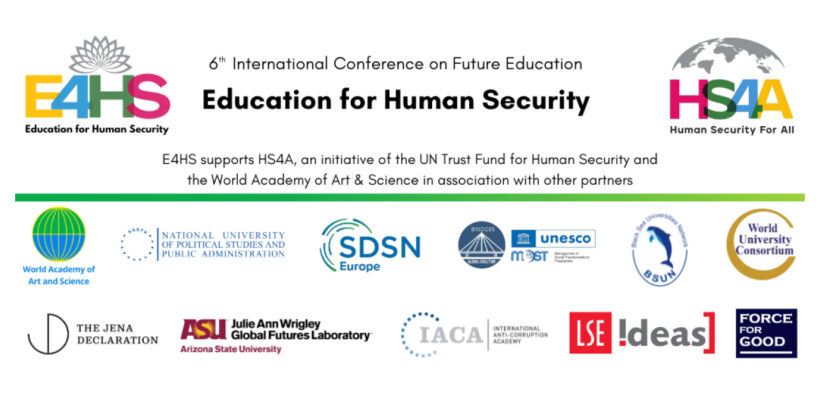
AUA Interim President Participates in BSUN Panel
3 min readYEREVAN, Armenia — On March 8, the American University of Armenia (AUA) Interim President Dr. Armen Der Kiureghian participated in a panel session organized by the Black Sea Universities Network (BSUN) within the scope of the 6th International Conference on Education for Human Security, held virtually on March 7-9. The conference aimed at examining the relevance and applicability of the Human Security Approach to different fields of higher education, generating awareness, and initiating active discussion among educators and universities on its central importance as an integral component of higher education.
Speaking at the panel titled “Education for Human Security in the Context of Regional Conflicts,” Dr. Der Kiureghian first spoke about the recent earthquake in Turkey and Syria, expressly focusing on what universities can do to protect people from such natural disasters. He recalled the founding of AUA realized as a result of a similar tragic event, the Spitak earthquake of December 7, 1988 which killed more than 25,000 people and made hundreds of thousands homeless. “In response to that tragic event, we resolved to set up an American-style educational system that would bring knowledge and expertise in earthquake engineering, but also a culture of critical thinking rooted in transparency, integrity, and evidence-based decision making,” he said. Dr. Kiureghian emphasized that collective efforts in this area must continue, and through collaboration and exchange of expertise among academics and researchers, universities across the region can protect the vital core of human lives thereby enhancing human freedoms and human fulfillment.
Dr. Der Kiureghian then addressed the two major conflicts in the region, Russia-Ukraine and Armenia/Nagorno Karabakh-Azerbaijan, highlighting that while the world fully sympathizes with the plight of the Ukrainian people in support of their basic rights, it must similarly recognize the rights of the Armenians of Nagorno Karabakh to live freely and thrive on their ancestral lands. Dr. Der Kiureghian also observed that the continuing blockade of the Lachin corridor has prevented many students studying at AUA and other universities in Yerevan from visiting their families in Nagorno Karabakh for months now.
In his examination of the Human Security Approach, Dr. Der Kiureghian placed emphasis on the role of educators in addressing regional conflicts and enhancing human security, singling out several priorities: ensuring access to quality education; instilling moral values in students; leading by example; and relying on evidence-based scholarship. “As educators, we can assume an important role in easing regional conflicts by not yielding to emotions, political posturing, militaristic rhetoric, and aggressive pronouncements that ferment hatred. Instead, we must strictly rely on evidence-based scholarship, and formulate ideas that bring about understanding among peoples helping them bridge their cultural and historical differences,” he remarked.
The panel session was moderated by Director of the Black Sea Universities Network Eden Mamut. Notable academics from different countries, including Turkey, Ukraine, Romania, and France, among others, spoke at the session.
The conference was conducted in support of Human Security for All (HS4A), a global campaign to generate awareness and elicit active support and participation from all major sectors and sections of global society in an unprecedented effort to release and mobilize the untapped energies and capacities of humanity in pursuit of human security for all.
The recording of the panel session is available here.
Founded in 1991, the American University of Armenia (AUA) is a private, independent university located in Yerevan, Armenia, affiliated with the University of California, and accredited by the WASC Senior College and University Commission in the United States. AUA provides local and international students with Western-style education through top-quality undergraduate, graduate, and certificate programs, promotes research and innovation, encourages civic engagement and community service, and fosters democratic values.
